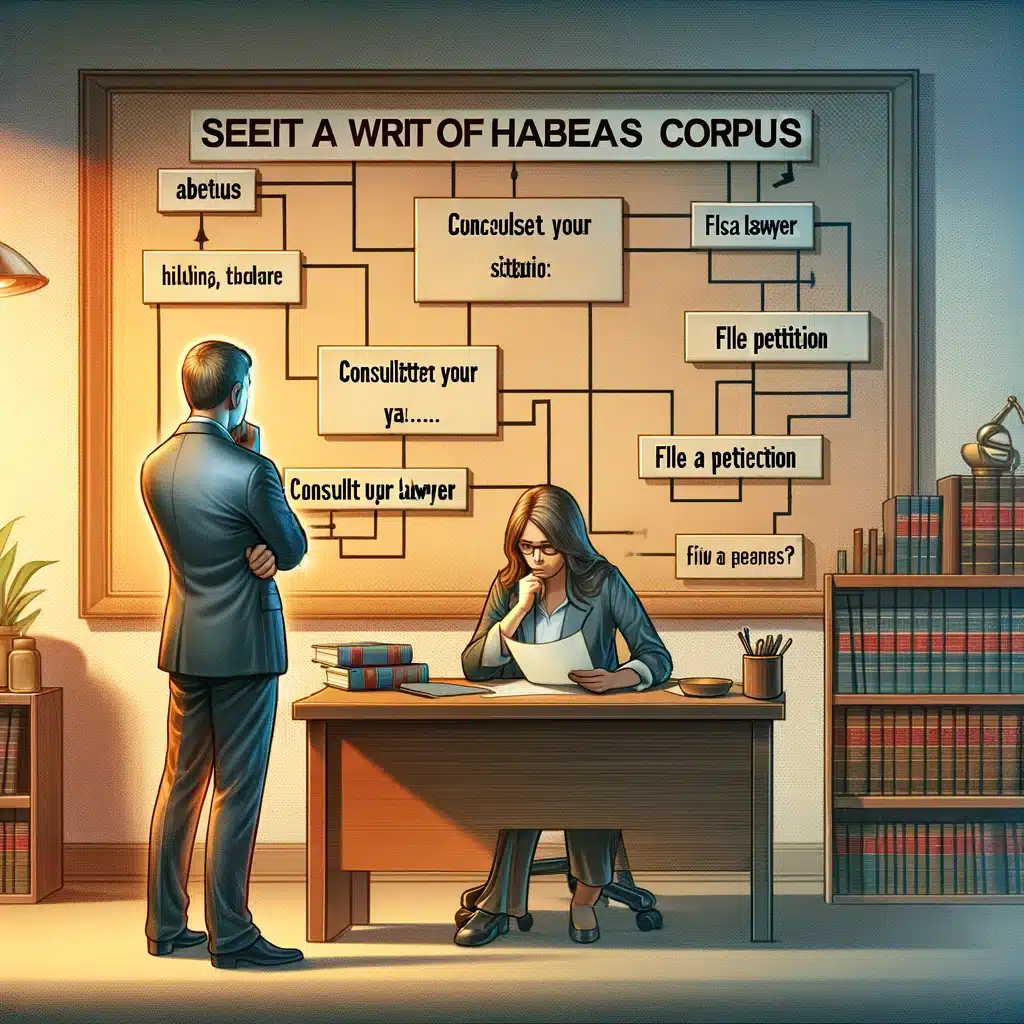Attorney's Suggestions on Habeas Corpus and Your Legal Defenses
Attorney's Suggestions on Habeas Corpus and Your Legal Defenses
Blog Article
Understanding the Function of a Post-Conviction Attorney in Seeking Justice After a Criminal Conviction
In the facility landscape of post-conviction lawful process, the duty of a post-conviction lawyer is critical in browsing the course to justice after a criminal conviction. Beyond the boundaries of a test, these lawful professionals participate in a diverse method targeted at discovering brand-new proof, difficult legal mistakes, and advocating for their clients' civil liberties. The complexities of post-conviction job require a mix of legal acumen, investigatory skills, and strategic believing to unravel the complexities of a situation and seek methods that might have been ignored or underexplored. As the quest of justice prolongs beyond the boundaries of initial process, the role of a post-conviction legal representative arises as a beacon of hope for those seeking to correct oppressions and redeem their legal rights within the legal system.
Post-Conviction Legal representative's Investigative Work
Post-conviction legal representatives participate in careful investigative work to uncover brand-new evidence, procedural mistakes, or misbehavior that can possibly bring about reversing a conviction. This investigatory stage is important in the post-conviction process as it intends to identify any forgotten information or legal missteps that might have impacted the outcome of the preliminary trial. Post-conviction attorneys explore case files, witness testimonies, and lawful documents with a fine-tooth comb, searching for any disparities or abnormalities that can be premises for charm.
Through comprehensive examination, post-conviction attorneys aim to clarify prospective injustices that might have taken place during the initial trial. They may perform meetings, speak with professionals, and evaluation forensic evidence to build a compelling instance for their clients. By scrutinizing every element of the legal process, post-conviction lawyers work relentlessly to reveal any type of factors that might have influenced the judgment. Ultimately, their investigative work plays a pivotal role in the quest of justice and the possible reversal of wrongful sentences.
Crafting Appeals and Petitions
In the pursuit of justice after a sentence, experienced lawyers meticulously craft appeals and petitions to present compelling arguments for the reconsideration of lawful decisions. Crafting appeals and requests requires a deep understanding of the legal system, interest to detail, and tactical reasoning. Post-conviction attorneys assess test records, recognize potential mistakes or infractions of civil liberties, and establish lawful debates to test the conviction or sentence.
When crafting an appeal, attorneys concentrate on highlighting legal errors that might have influenced the outcome of the instance. They research case law, laws, and lawful precedents to support their arguments. Petitions, on the other hand, might entail offering new proof that was not available throughout the trial or showing modifications in the regulation that require an evaluation of the conviction.
Furthermore, post-conviction attorneys have to stick to rigorous procedural guidelines and deadlines when submitting appeals and applications. They must offer their arguments clearly and persuasively to convince the court to grant alleviation to their customers. Through careful crafting of appeals and petitions, post-conviction legal representatives make every effort to secure justice for people that have been wrongfully convicted or unfairly punished.

Going After Post-Conviction Alleviation
Post-conviction relief includes a variety of legal devices developed to challenge the validity of a sentence or sentence. Post-conviction legal representatives play a crucial role in browsing these complicated treatments, making certain that all lawful alternatives are discovered to fix oppressions that may have taken place during the trial or sentencing phase.
One common kind of post-conviction relief is submitting an application for post-conviction relief, normally based on insurance claims of inefficient aid of guidance, prosecutorial misconduct, newly found evidence, or constitutional violations. Experienced post-conviction lawyers possess the abilities and knowledge necessary to identify sensible lawful cases, perform examinations, and present compelling debates to protect alleviation for their customers.
Using Forensic Evidence
When challenging a sentence or sentence, the calculated use of forensic evidence can be an effective tool in post-conviction legal procedures. Forensic evidence encompasses a wide array of scientific methods used to explore criminal activities and establish realities in court. Post-conviction attorneys can take advantage of forensic official website evidence to challenge the legitimacy of convictions by presenting brand-new scientific searchings for that were not offered throughout the original trial.

Engaging in Sentence Modifications
Post-conviction lawyers may check out the opportunity of sentence adjustments as a lawful method to deal with out of proportion or unjust sentences handed down in criminal instances. Sentence alterations entail looking for modifications to the terms of a defendant's sentence after a conviction has actually taken location. These modifications can consist of reducing the size of a sentence, changing the sort of penalty imposed, or checking out alternative sentencing alternatives.
Post-conviction lawyers can seek sentence modifications with different lawful devices, such as filing movements for sentence reduction, appealing for thoughtful launch, or negotiating appeal offers for lowered sentences. They should carefully examine the conditions of the instance, evaluate the lawful premises for seeking an adjustment, and existing engaging arguments to the court supporting the demand for a revised sentence.
Participating in sentence adjustments needs an extensive understanding of criminal law, punishing guidelines, and the particular procedures included in seeking post-conviction relief. Post-conviction lawyers play a critical duty in supporting for reasonable and simply results by difficult sentences that are unduly harsh or do not align with the concepts of justice.
Verdict
In verdict, the function of a post-conviction attorney is important in looking for justice after a criminal conviction. Through investigative work, crafting appeals and petitions, seeking post-conviction relief, utilizing forensic evidence, and engaging in sentence alterations, these lawyers play a vital duty in advocating for their customers and making sure that their legal rights are promoted within the criminal justice system. Their dedication and know-how are vital in navigating the complexities of post-conviction procedures and attaining a fair outcome for people dealing with criminal sentences.
Report this page